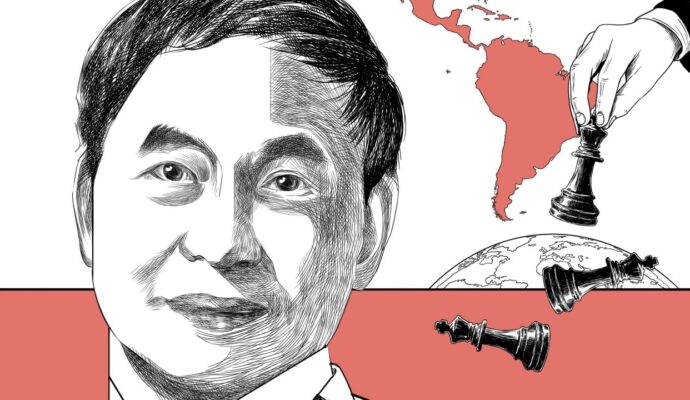Austin Strange, who teaches international relations at the University of Hong Kong, said the de-risking strategy would theoretically allow countries to more effectively identify and manage risks arising from international circumstances.
He said the strategy was intended to ensure stable supply chains as well as minimise opportunities for potentially adversarial economic coercion.
“Germany appears to want to retain China as a vital economic partner but pursue selective cooperation that minimises economic, political and security vulnerabilities.”
To this end, Berlin was “actively tailoring engagement in hi-tech and infrastructure-heavy sectors, especially domestically and in Europe”, Strange said.
Scholz’ visit to China in November – the first by a G7 leader since the pandemic – was met with scepticism by some, who felt his openness to Beijing could undermine a united Western front.
Half a year later, Strange said Li’s trip would be “an opportunity for outside observers to gauge their own options”.
And, if it yielded results, the visit would show that viable cooperative pathways exist beyond decoupling, and that the more confrontational approach of recent years was not the only way, he said.
In an indication that Germany remains cautious about its engagement with China, Berlin labelled Beijing a “systemic rival” in its first national security strategy released on Wednesday.
Zoon Ahmed Khan, a foreign-policy analyst and research fellow at Tsinghua University’s Belt and Road Strategy Institute, said there were “diverging views” in Berlin.
“For example, Foreign Minister Annalena Baerbock holds a more suspicious view of China when compared to Chancellor Scholz, who takes a pro-pragmatism position,” Khan said.
Partnerships in some areas were more likely to be agreed upon than others by most of Berlin’s decision makers, she said.
“Li’s visit will serve as a platform for the two countries to advance three main agendas: trade and economic cooperation by promoting trade liberalisation, cooperation on global governance especially climate change, and global peace.”
Khan said both countries could benefit from collaborating in these areas, noting that China’s high carbon emissions – 32 per cent of the global total in 2022, followed by the US at 14 per cent and India at 8 per cent – had raised concerns in the EU.
In terms of per capita emissions, China’s load was around half that of the US, making it the 28th largest polluter, according to the most recent data from Climate Watch.
“But [China’s] commitment to carbon neutrality by 2060, its investment in green technology and its cooperation with the rest of the world, including the global south, have simultaneously made Beijing emerge as a vital climate partner for the bloc.”
Zuo Xiying, international relations professor at Renmin University of China, said Beijing should continue its strategy of encouraging European countries to adopt relatively friendly policies, as a major approach to counteract US containment.
“[China] should deepen cooperation with Europe as much as possible to promote Europe to maintain its strategic autonomy,” he told a virtual forum last Friday.
After Berlin, Li will head to Paris to attend the summit for a new global financial pact, announced by French President Emmanuel Macron at the G20 in November.
Macron attracted controversy in April, when he called for Europe to build its strategic autonomy and avoid becoming Washington’s “vassal”.


